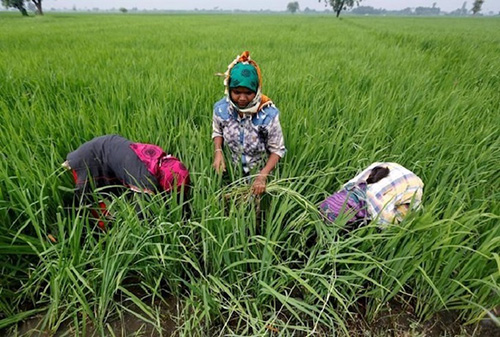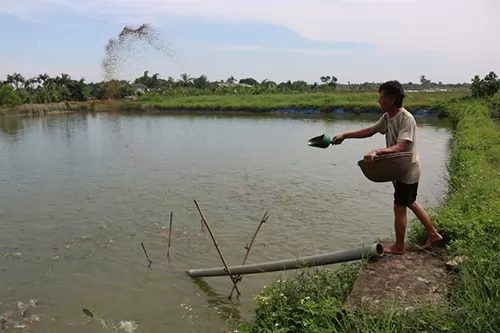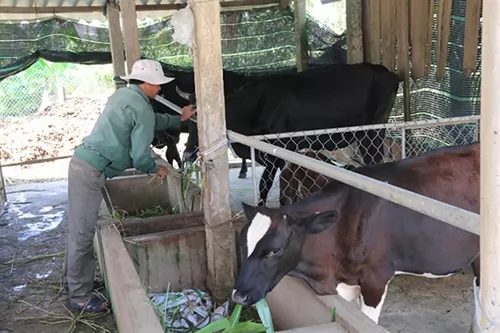Vietnam prices ease from multi-year highs, India rice rates nudge up
-- By Reuters

Indian farmers working on rice field. Photo by Reuters
Vietnamese rice fell this week after climbing to the highest since January 2012 the week before.
Rates for India’s 5 percent broken parboiled variety rose by $5 to $398-$402 per tonne this week, after hitting the lowest level for the year last week due to sluggish demand from neighbouring Bangladesh.
India was the biggest supplier of rice to Bangladesh in 2017. Imports by Bangladesh will likely slow as the government imposed a 28 percent tax on rice imports to support its farmers after local production revived.
“Last year, Bangladesh was buying a lot of Indian rice. With new duty, imports would fall,” said M. Adishankar, executive director at Sri Lalitha, a leading rice exporter located in the southern Indian state of Andhra Pradesh.
“Chinese imports will boost demand but we don’t know when it will happen.”
China last week agreed to amend a protocol on phytosanitary requirements, which will allow Indian exporters to ship non-basmati rice to Beijing.
The monsoon has not been progressing well and could delay planting of summer-sown rice, said another exporter based at Kakinada in Andhra Pradesh.
In Vietnam, the world’s third-largest exporter of the grain, prices of 5 percent broken rice fell to $450-$455 a ton this week after climbing to the highest since January 2012 at $465-$475 the week before.
“Prices are expected to ease further in the coming weeks on rising domestic supplies, as the spring-summer harvest will peak late this month,” a Ho Chi Minh City-based trader said.
Vietnam exported 763,707 tons of rice in May, up 5.9 percent from April, according to the government’s official customs data.
Meanwhile, Thailand’s benchmark 5 percent broken rice was little changed between $430 and 435 per ton this week, free on board (FOB) Bangkok, from $430-$432 last week.
Traders in Bangkok said demand from abroad was still flat this week following sales to the Philippines earlier this month and last month.
Slow logistics due to rain also meant slow trade, traders said. Thailand’s rainy season starts in late May and lasts until mid-October.
“It’s been raining, so ships can’t sail here to pick up orders. Now the warehouses are full, with trucks lining up outside waiting to offload more rice. It’s all stuck, so the market is still,” a trader said.
Maybe you are interested

Sustainable aquaculture
Thanks to high quality aquaculture, Xuan Neo Aquatic Product Xuan Neo (Hung Dao Commune, Tu Ky District) is one of the most developed cooperatives in Hai Duong Province.

In 8 months, Vietnam imported about 2 million breeding chickens
According to the Chairman of the Animal Husbandry Association of Vietnam Nguyen Thanh Son, annual poultry breed imports are 3 - 3.5 million chickens/year.

Mekong Delta develops beef, dairy farming
HCM CITY — Many provinces in the Cửu Long (Mekong) Delta have developed dairy and beef farming since it provides farmers with an additional income and benefits from local agricultural by-products.





